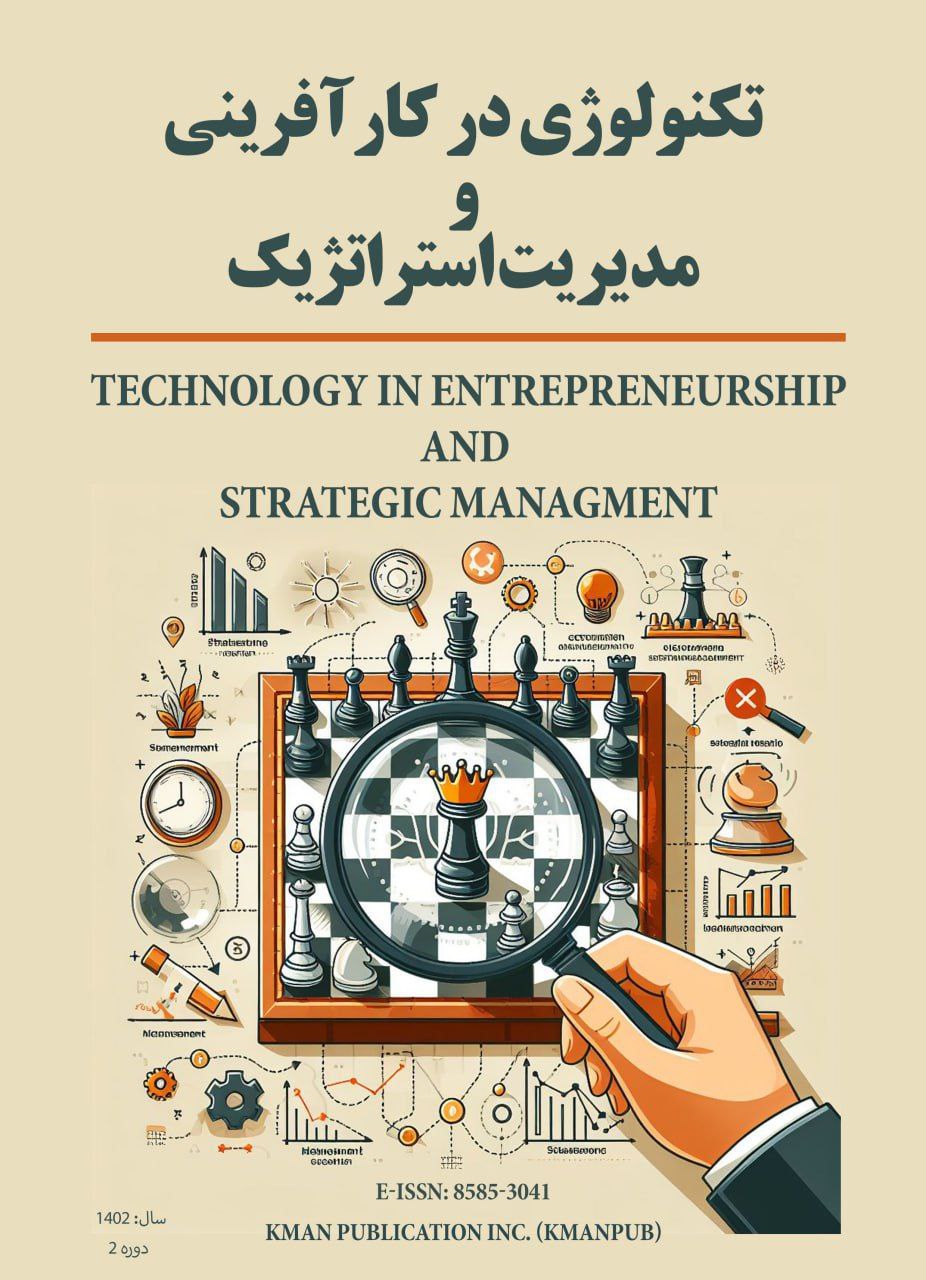شناسایی موانع فناورانه در مسیر کارآفرینی
کلمات کلیدی:
کارآفرینی, موانع فناورانه, موانع محیطی, موانع فرهنگی-اجتماعی, توسعه کسبوکارچکیده
در عصر کنونی، فناوری نقش محوری در توسعه کسبوکارهای کارآفرینانه ایفا میکند. با این حال، کارآفرینان در مسیر استفاده و ادغام فناوری با چالشهای متعددی روبرو هستند که میتواند رشد و پیشرفت آنها را محدود کند. هدف از این مطالعه شناسایی و تحلیل موانع فناورانهای است که کارآفرینان در مسیر توسعه کسبوکارهای خود با آن مواجه هستند. این پژوهش از رویکرد کیفی با استفاده از مصاحبههای نیمهساختاریافته با بیست و سه کارآفرین انجام شده است. دادهها از طریق تحلیل محتوا مورد بررسی قرار گرفتند. یافتهها شش موضوع اصلی موانع فناورانه را نشان داد: موانع محیطی، موانع فرهنگی-اجتماعی، موانع تکنولوژیکی، موانع بازار، مهارتها و دانش، و کارآفرینی مهاجرتی. این موانع شامل چالشهای مربوط به قوانین و مقررات، دسترسی به منابع مالی، تفاوتهای جنسیتی، و دیگر موضوعات بودند. این مطالعه نشان میدهد که کارآفرینان برای دستیابی به موفقیت و استفاده بهینه از فناوری در کسبوکارهای خود، نیازمند غلبه بر مجموعهای از موانع فناورانه هستند. توجه به این موانع و طراحی راهکارهایی برای رفع آنها میتواند به توسعه پایدار کسبوکارهای کارآفرینانه کمک کند.
دانلودها
مراجع
Aria Parsa, M., & Dalvi Esfahan, M. R. (2023). Mixed Research of Establishing of an Entrepreneurial Model with a Future
Research Approach in the Metaverse Era in Knowledge-Based Companies in the Field of Information Technology. Iranian
Journal of Educational Society, 9(2), 83-94. https://doi.org/10.22034/ijes.2023.1989737.1388
Ayatakshi-Endow, S., & Steele, J. J. (2021). Striving for Balance: Women Entrepreneurs in Brazil, Their Multiple Gendered
Roles and Covid-19. International Journal of Gender and Entrepreneurship. https://doi.org/10.1108/ijge-09-2020-0142
Barth, H., & Zalkat, G. (2020). Immigrant Entrepreneurship in Sweden: The Liability of Newness. Sustainability.
https://doi.org/10.3390/su12166478
Karanasios, S., & Burgess, S. (2008). Tourism and Internet Adoption: A Developing World Perspective. International Journal
of Tourism Research. https://doi.org/10.1002/jtr.649
Konstadakopulos, D. (2008). Environmental and Resource Degradation Associated With Small‐Scale Enterprise Clusters in
the Red River Delta of Northern Vietnam. Geographical Research. https://doi.org/10.1111/j.1745-5871.2007.00491.x
Manning, S., & Vavilov, S. (2023). Global development agenda meets local opportunities: The rise of development-focused
entrepreneurship support. Research Policy, 52(7), 104795. https://doi.org/10.1016/j.respol.2023.104795
Mostafa Zadeh, F., Haghighat Monfared, J., & Keramati, M. A. (2023). Presenting an Interpretive Structural Framework for
Entrepreneurship Development in Higher Education with Social and Economic Consequences (Case study: University
Central Tehran Branch). Political Sociology of Iran, 5(11), 244-263. https://doi.org/10.30510/psi.2022.331232.3153
Sindhu, S., & Mor, R. S. (2022). Modelling the Interactions Among Enablers of Technology Entrepreneurship: An ISM and
Fuzzy-Micmac Approach. Entrepreneurial Business and Economics Review. https://doi.org/10.15678/eber.2022.100206
Zhang, H. (2023). Design and Application of College and University Entrepreneurship Platform Based on MVC Architecture.
Procedia Computer Science, 228, 211-222. https://doi.org/10.1016/j.procs.2023.11.025












